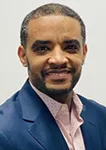By Cedric Ling, Debashish Kar, Nur Yazdani, Eyosias Beneberu, Maria Koliou, and Yong Yoo, an Article Out Loud from Domestic Preparedness, January 24, 2024.
When homeowners choose to elevate their homes above flood levels, they may compromise the structural integrity of the building if the elevation method does not use the correct specifications. This new tool closes decision gaps that current guidelines and building codes do not address.

Cedric Ling
Cedric Ling received a Ph.D. degree in structural engineering from the University of Texas at Arlington. He earned his Bachelor of Science degree in Ocean Engineering at Texas A&M University College Station and a Master of Engineering degree in Civil Engineering at the University of Houston. During his master’s program, he worked at Bechtel, Inc., in Houston as part of the offshore group as both a naval architect and a marine terminal engineer. Currently, he is working as a design engineer at Volkert, Inc., Houston.
- Cedric Linghttps://www.domesticpreparedness.com/author/cedric-ling

Debashish Kar
Debashish Kar is a front-end User Interface (UI) developer specializing in creating engaging and responsive web applications. He has a master’s degree in computer science from the University of Texas at Arlington and has over three years of professional experience. He has developed six software applications in both private industry and public institutions, including a COVID Management System and the Home Elevation Decision Tool described in this article. He is currently working as a full stack developer at the Texas A&M AgriLife.
- Debashish Karhttps://www.domesticpreparedness.com/author/debashish-kar

Nur Yazdani
Dr. Nur Yazdani is a professor and past chairperson of the Civil Engineering Department at the University of Texas at Arlington. He received his Ph.D. and master’s degrees from the University of Maryland College Park and the University of Oklahoma, Norman. A fellow of the American Society of Civil Engineers (ASCE), American Concrete Institute (ACI), and ASCE Structural Engineering Institute (SEI), he is the author of more than 180 articles in journals and proceedings and an invited speaker at conferences and seminars. Dr. Yazdani is well known for his research on bridge design, evaluation and rehabilitation, resilient and high-performing infrastructure design and rehabilitation, natural and man-made hazards, coastal infrastructure, and engineering education. He has secured more than $18 million from research projects. He has been highly successful in finding and applying technology to improve the inspection, repair, rehabilitation, safety, durability, and performance of concrete bridges. Research results have been widely adopted and practiced, primarily by state and federal agencies. Leadership roles included the chair of national professional chapters. As part of the committee activities, he was instrumental in developing and modifying governing codes, standards, and guidelines from ACI and ASCE. Dr. Yazdani has served as an ASCE-certified civil engineering program evaluator for the Accreditation Board for Engineering & Technology (ABET).
- Nur Yazdanihttps://www.domesticpreparedness.com/author/nur-yazdani

Eyosias Beneberu
Dr. Eyosias Beneberu is an associate professor of research in Civil Engineering at the University of Texas at Arlington and a practicing bridge engineer. His academic experience ranges from teaching to researching various topics in structural engineering and hazard mitigation. His areas of expertise include repair and rehabilitation of structures, structural fire engineering, non-destructive evaluation, and health monitoring of bridges. Dr. Beneberu is a member of the ASCE-SEI Technical Activities Division for Bridge Management, Inspection and Rehabilitation Committee, ASCE Fire Protection Committee, and reviewer for various ASCE, ACI, and Elsevier journals. Dr. Beneberu’s industry experience encompasses the structural design of high-rise buildings and bridges as well as construction inspections of transportation infrastructure. He is a licensed professional engineer in multiple states and a fellow of the ASCE-SEI.
- Eyosias Beneberuhttps://www.domesticpreparedness.com/author/eyosias-beneberu

Maria Koliou
Dr. Maria Koliou is an associate professor at the Zachry Department of Civil and Environmental Engineering (CEE) at Texas A&M University. Her research contributions focus on developing resilient and sustainable structures and communities against extreme events to safely and functionally accommodate growing populations in urban areas. Her work includes system-level and community-level simulations that analyze the performance of structures and communities to extreme events. She is developing novel resilient structural designs and systems against various natural hazards and formulating fundamental mathematical frameworks to assess risk-based system functionality and community resilience. Dr. Koliou has received over $3 million in external research funding from federal, state, and private sources, and she is currently leading a multi-institution National Science Foundation (NSF) project on the “Gulf Resilience Coastlines and People Focused Research Hub” focusing on the recovery of tribal communities in the Gulf region. Dr. Koliou received the 2018 Structural Engineering Institute’s Young Professional Scholarship, 2021 Research Impact Award by the Department of CEE at Texas A&M, 2021 Engineering Genesis Award for multi-disciplinary research by the Texas A&M College of Engineering, and the 2021 NSF CAREER award. She has very recently been selected as one of the NSF and Kaleta A. Doolin Foundation Ocean Decade Champions.
- Maria Koliouhttps://www.domesticpreparedness.com/author/maria-koliou

Yong Yoo
Yong Yoo has a Ph.D. in civil structural engineering with 11 years of research experience. In particular, Yong Yoo has conducted various research projects using Finite Element (FE) and structural analysis programs.
- Yong Yoohttps://www.domesticpreparedness.com/author/yong-yoo








